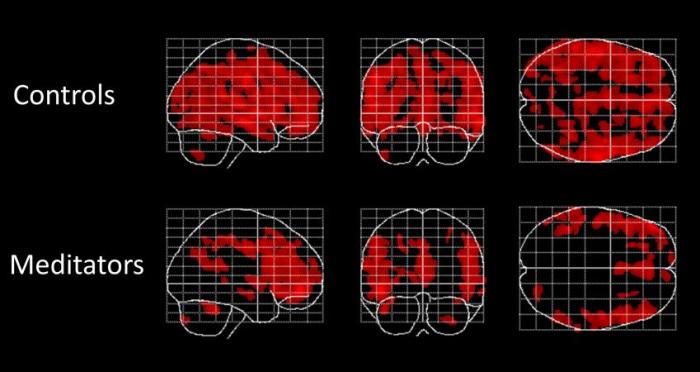A bevy of research studies have found measurable results from meditation: reduced blood pressure, changes in brain activity and heart rate. It's undeniable that working with your mind has physical effects.
But how much meditation does it take to see results?
Researchers at Carnegie-Mellon University have found that 25 minutes of meditation for three consecutive days
alleviates psychological stress.
"More and more people report using meditation practices for stress
reduction, but we know very little about how much you need to do for
stress reduction and health benefits," said lead author J. David Creswell, associate professor of psychology in the Dietrich College of Humanities and Social Sciences.
For the study, 66 people age 18-30 years old participated in a three-day experiment. Some participants went through a three-day mindfulness meditation training
program where they were
given breathing exercises to help them monitor their breath and pay
attention to their present moment experiences. A second group completed a matched three-day cognitive training program in
which they were asked to critically analyze poetry in an effort to
enhance problem-solving skills.
After the training, participants were asked to
complete stressful speech and math tasks in front of stern-faced
evaluators. Each individual reported their stress levels and provided saliva
samples for measurement of cortisol, commonly referred to as the stress
hormone.
The participants who received the meditation
training perceived less stress related to the speech and math
tasks, but showed greater cortisol reactivity.
"When you initially learn mindfulness mediation practices, you have
to cognitively work at it — especially during a stressful task," Creswell said. "And, these active cognitive efforts may result in the task
feeling less stressful, but they may also have physiological costs with
higher cortisol production."
Researchers are looking at the possibility that mindfulness can
become more automatic and easy to use with long-term meditation training, which may result in reduced cortisol reactivity.
“More
and more people report using meditation practices for stress reduction,
but we know very little about how much you need to do for stress
reduction and health benefits,” lead author J. David Creswell, associate
professor of psychology in the Dietrich College of Humanities and
Social Sciences said in a press release. - See more at:
http://www.elevatedexistence.com/blog/2014/07/10/25-minutes-of-mindfulness-meditation-alleviates-psychological-stress-study-shows/#sthash.EaLVAwjz.dpuf
“More
and more people report using meditation practices for stress reduction,
but we know very little about how much you need to do for stress
reduction and health benefits,” lead author J. David Creswell, associate
professor of psychology in the Dietrich College of Humanities and
Social Sciences said in a press release. - See more at:
http://www.elevatedexistence.com/blog/2014/07/10/25-minutes-of-mindfulness-meditation-alleviates-psychological-stress-study-shows/#sthash.EaLVAwjz.dpuf
New
research from Carnegie Mellon University is the first to show that
brief mindfulness meditation practice — 25 minutes for three consecutive
days — alleviates psychological stress. Published in the journal
“Psychoneuroendocrinology,” the study investigates how mindfulness
meditation affects people’s ability to be resilient under stress.
“More and more people report using meditation practices for stress
reduction, but we know very little about how much you need to do for
stress reduction and health benefits,” lead author J. David Creswell,
associate professor of psychology in the Dietrich College of Humanities
and Social Sciences said in a press release.
- See more at:
http://www.elevatedexistence.com/blog/2014/07/10/25-minutes-of-mindfulness-meditation-alleviates-psychological-stress-study-shows/#sthash.EaLVAwjz.dpuf
New
research from Carnegie Mellon University is the first to show that
brief mindfulness meditation practice — 25 minutes for three consecutive
days — alleviates psychological stress. Published in the journal
“Psychoneuroendocrinology,” the study investigates how mindfulness
meditation affects people’s ability to be resilient under stress. - See
more at:
http://www.elevatedexistence.com/blog/2014/07/10/25-minutes-of-mindfulness-meditation-alleviates-psychological-stress-study-shows/#sthash.EaLVAwjz.dpuf
New
research from Carnegie Mellon University is the first to show that
brief mindfulness meditation practice — 25 minutes for three consecutive
days — alleviates psychological stress. Published in the journal
“Psychoneuroendocrinology,” the study investigates how mindfulness
meditation affects people’s ability to be resilient under stress. - See
more at:
http://www.elevatedexistence.com/blog/2014/07/10/25-minutes-of-mindfulness-meditation-alleviates-psychological-stress-study-shows/#sthash.EaLVAwjz.dpuf









